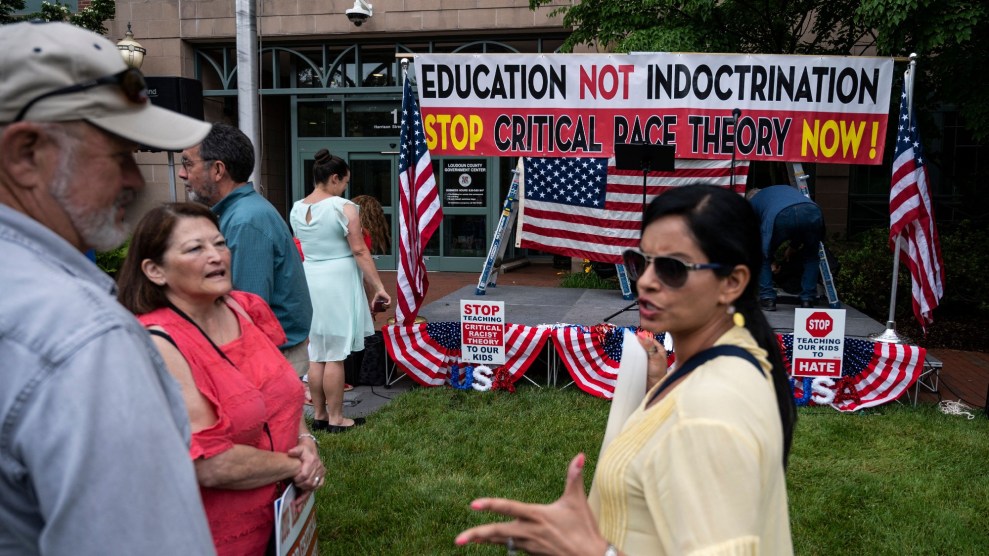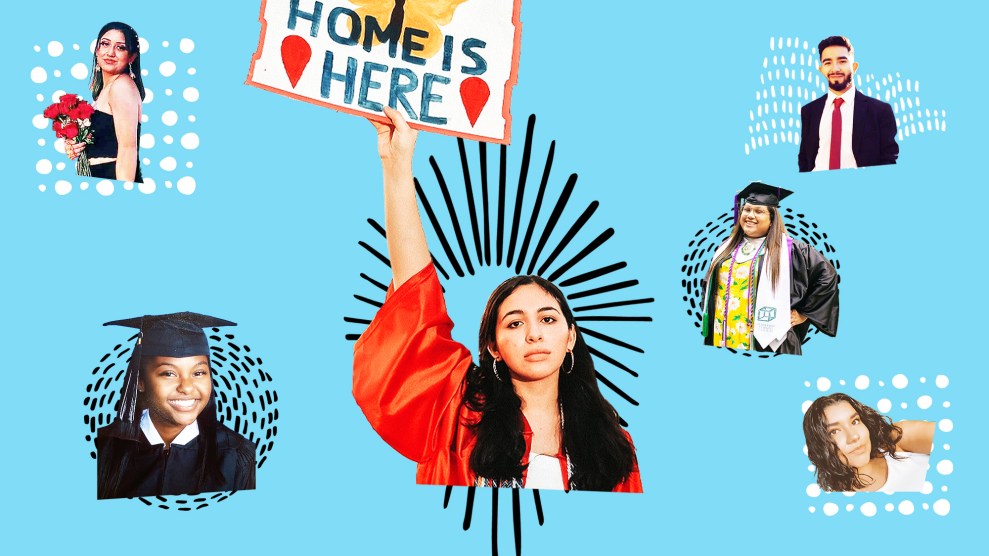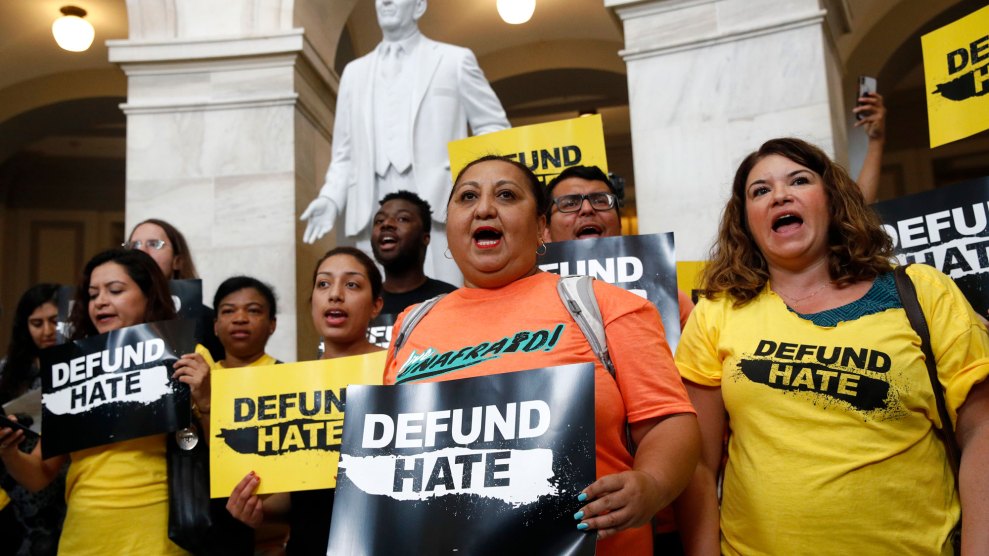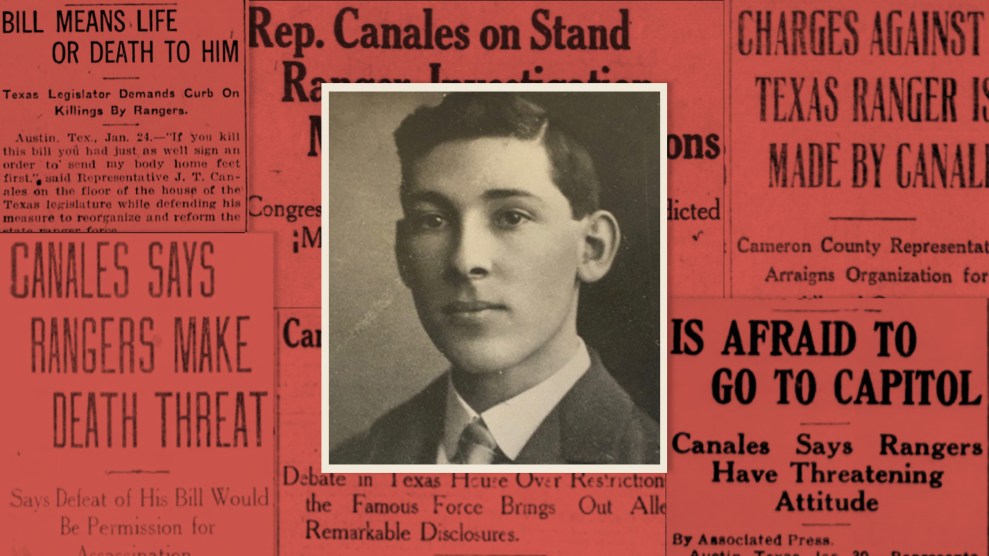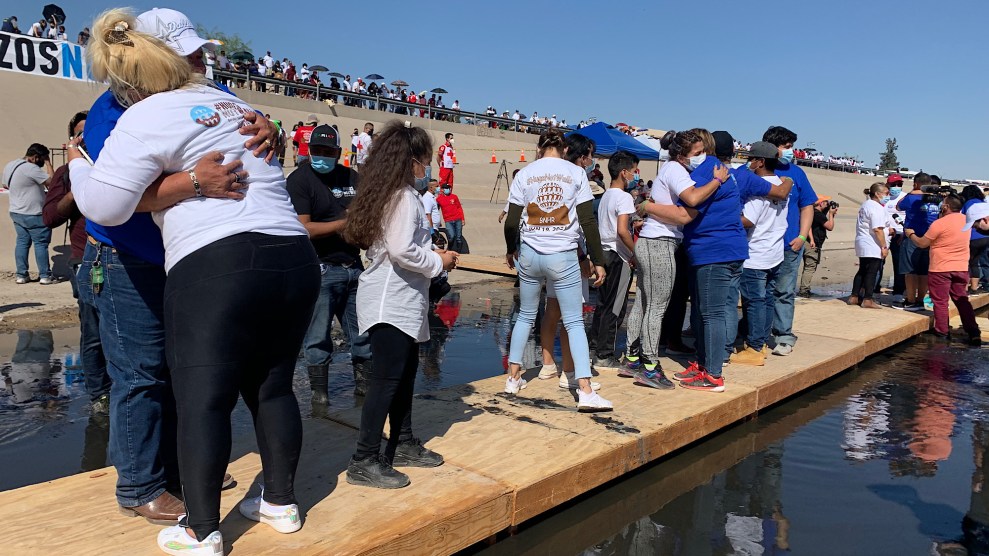
Andrea Guzman
After a four-hour drive from Albuquerque, the Silvas stood at the foot of the Rio Grande in El Paso, Texas, waiting for permission to walk onto a narrow wooden bridge in the shallow river. They had just been summoned by megaphone to walk through a gate in the border fencing and down a concrete path leading to the river. In this decidedly unsentimental setting, Lily Silva’s three-month-old, Angela, would get to meet her brother, Leo, who lives in Juárez, Mexico, with his father. Three minutes later, they would go their separate ways.
The Silvas were among the 200 families or so who reunited Saturday in a “Hugs Not Walls” event, during which families separated by the US–Mexico border are allowed to reunite for a few minutes. This was the Silvas first time attending the event, and they were optimistic that it would be their last.
“Hopefully by next year, [Leo] is gonna be up here. You just have to wait for the legal process to continue for this next year,” Leo’s stepfather said, “so we don’t have to see each other for just a few minutes.” Around them, children in Mexico raced to the caution tape blocking people from the Rio Bravo, as it’s known outside the U.S., and others waved at their loved ones until it was their turn.
The event has been hosted regularly since 2016 by an El Paso nonprofit, the Border Network for Human Rights. Saturday marked the first time the event has happened since the pandemic began and it fell on Juneteenth, a holiday marking the day in 1865 that enslaved Black Americans in Galveston were informed of their freedom and the end of the Civil War. On Thursday, President Biden signed a law making Juneteenth a federal holiday.
“If laws could change hearts, then what President Joe Biden signed the other day would end our struggle. But I declare to you today, our struggle continues,” said Michael Brady, a local pastor. “On the Mexican side of the border, we stand with you in solidarity. You are our brothers. You are our sisters.”
As Mother Jones reported in 2019, the reunions require sign-off from U.S. Customs and Border Protection, the International Water Commission, local law enforcement, and federal police in Mexico. This year also brought new precautions related to the pandemic. Attendees were required to wear masks—some removed them only briefly as they embraced—and those on the U.S. side had to be vaccinated.
The event also came days after Texas Gov. Greg Abbott announced plans to divert $250 million from the state’s department of criminal justice toward a border wall, even as incarcerated Texans face sweltering conditions in the summertime.
Fernando Garcia, executive director of the Border Network for Human Rights, called the move political theater and criticized it for further militarizing the border, alluding to Abbott’s decision earlier this year to deploy additional state police to some Texas cities. “They are pandering to white supremacists,” Garcia said.
Abbott, who was endorsed this month by Donald Trump for another term as governor, didn’t specify where additional fencing would be placed, but he called for public donations to help fund it. During the announcement, another state leader, Lt. Gov. Dan Patrick, described immigrants crossing the border as an “invasion,” mimicking language used in a manifesto written by the El Paso Walmart shooter.
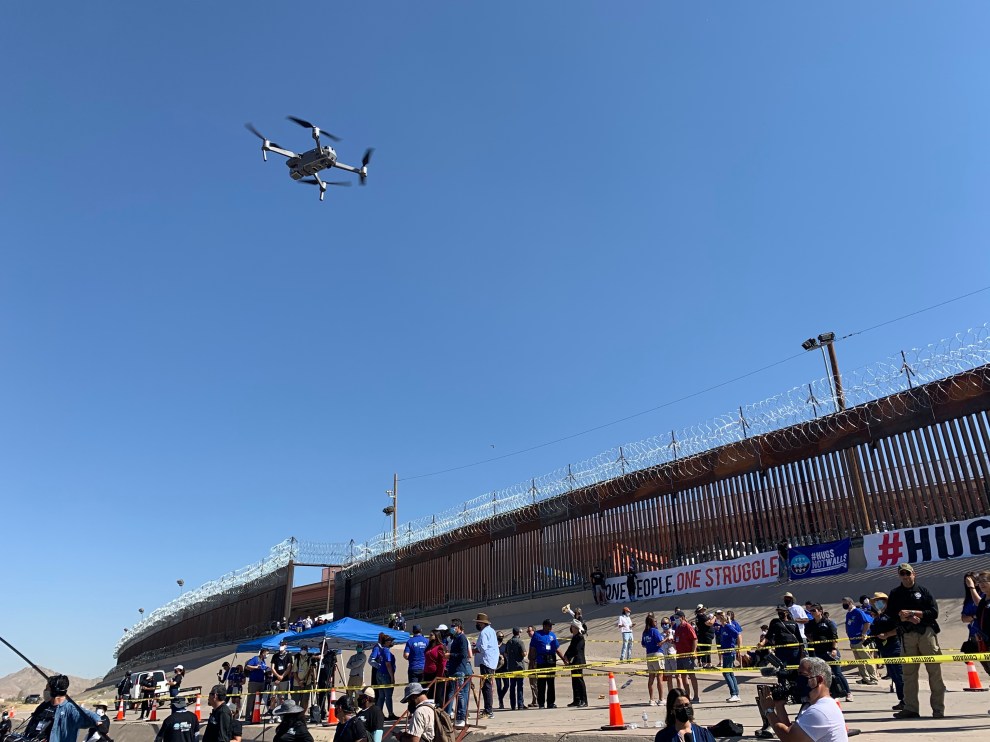
U.S. Rep. Veronica Escobar, a Democrat representing El Paso and its suburbs, was quick to call out the statements on Twitter earlier this week. On Saturday, she challenged politicians to bear witness to future reunions so that they might “see the tragedy of that separation when each family has to go back to their own side.”
“It is incredible to me that we still have to come together in the middle of a river because we have governments that choose to divide us and separate us,” Escobar said as drones flew overhead and police and border patrol agents surrounded the event.
As organizers told families their three minutes were up, loved ones gave each other final hugs, kisses, and benedictions. The experience was priceless, the Silvas said, and they hoped they would never have to do it again.

